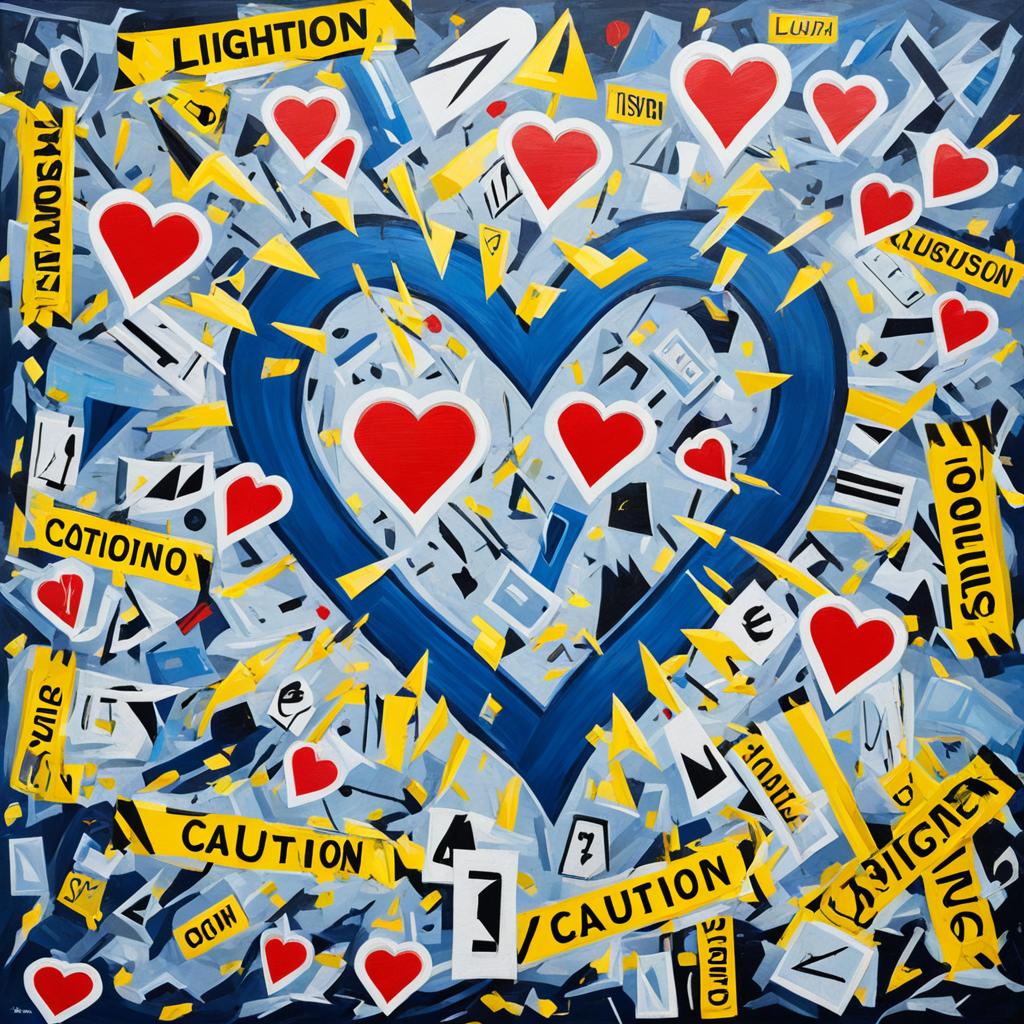Red flags in relationships are key warning signals. Psychologist Judith Klenter says it’s crucial to notice these signs. These red flags can be dishonesty, not caring for others’ feelings, different abuse forms, and no respect for personal space or time. There’s also gaslighting, love-bombing, and being overly jealous.
On the other side, green flags show a relationship is healthy. They include respecting each other, supporting personal goals, and forming an emotional bond. Spotting red flags can be hard during the early love stage or when we ignore bad signs.
Key Takeaways
- Red flags can arise at any point in a relationship, either immediately or later.
- Common red flags include dishonesty, lack of empathy, and various forms of abuse.
- Green flags in relationships include mutual respect and emotional connection.
- The honeymoon phase may cause people to overlook red flags.
- Open communication is essential in addressing red flags.
- Seeking help from trustworthy individuals is advised when dealing with red flags.
- Unchecked red flags can impact both mental health and relationship quality.
Understanding Relationship Red Flags
Relationship red flags are signs that something may not be right. They can show problems with compatibility or even abusive actions. Spotting these early is key for your safety and happiness.
Definition of Red Flags
Judith Klenter says red flags warn us that someone might not be right for us. These warnings come in many forms. For example, talking too much about an ex might mean they’re not over them. Gaslighting can make you doubt yourself, while love bombing can overwhelm you. And if someone always tries to please, you might not see their true self.
Importance of Recognizing Red Flags Early
Identifying dangerous signs early is crucial. It helps stop problems from getting worse and keeps you mentally and emotionally safe. Fixing things quickly can also protect you and make your relationship stronger. Not all warning signs are easy to see right away. For instance, someone acting hot and cold may take time to spot. Excessive jealousy or comparisons to an ex can show insecurity.
“Recognizing red flags early can stop problems from growing and help us understand their impact on our well-being.”
Listening to your gut and getting advice from a therapist can be vital. If you see any signs of abuse, either verbal or physical, act fast to stay safe. Yellow flags mean be careful, but red flags signal severe problems that need immediate action.
Common Red Flags in Relationships
Knowing potential troubles in relationships is key to a happy partnership. Experts say spotting red flags early helps avoid emotional damage.
Controlling Behavior
Controlling actions are big red flags. It could mean keeping a partner away from loved ones, bossing them around, or making choices for them. Experts warn this might lead to emotional harm.
Jealousy Issues
Jealousy shows trust issues and insecurity. It includes over-questioning, snooping on phones, and unwarranted doubts. This erodes the trust that’s critical for a strong relationship.
Lack of Trust
Trust problems harm a relationship’s health. They can come from past hurts or current lies. Trust is vital for emotional closeness and security.
Emotional Abuse
Signs of emotional abuse are manipulation, gaslighting, and constant criticism. These signs might be quiet but deeply hurt mental health. It’s essential to recognize and tackle emotional abuse for safety and well-being.
What Are Red Flags to Watch Out For in a Relationship?
It’s very important to spot and deal with red flags in a relationship. This helps keeps things healthy and respectful between partners. Knowing what these flags are can avoid common problems. It can also make the relationship stronger.

Identifying Unchecked Anger
Unchecked anger can show up in many ways. It might be loud outbursts or quiet, passive-aggressive acts. This may mean someone has issues handling their anger. It can really shake up a relationship’s peace. It’s crucial to talk about these behaviors early on. This avoids bigger fights later.
Financial Irresponsibility
Being careless with money, like overspending or hiding spending, can hurt a relationship. Arguments over money can damage trust and even cause bitterness. It’s important to be open about how you handle money. Talking about financial choices and goals can help keep things smooth.
Communication Breakdown
Good communication is a must in any healthy relationship. When communication stops, it might mean bigger problems are happening. It could show a lack of understanding or a refusal to solve issues together. Talking openly about what you feel, expect, and worry about can fix misunderstandings. This prevents small issues from turning into big arguments.
Watching out for these red flags is key to a supportive relationship. Spotting things like unchecked anger, money problems, and poor communication early helps a lot. Solving these issues quickly makes for a stronger, closer partnership.
The Impact of Ignoring Red Flags
Red flags in relationships are serious signs. Traits like narcissism, gaslighting, or being too controlling are warnings. They show deeper problems that can harm a relationship’s stability and health.

Consequences on Mental Health
Ignoring these signs can cause big mental health issues. This includes anxiety, depression, and low self-esteem. Being in a toxic relationship can make you put your partner’s needs first always. This can leave you feeling not good enough and without hope.
Constantly facing abusive behavior can damage your mental and emotional health. It wears you down over time.
Long-term Relationship Damage
Not paying attention to red flags can hurt a relationship in the long run. Issues with trust, talking to each other, and feeling connected can arise. Also, psychological risks that are not dealt with can keep causing harm. This creates a cycle of negative actions that shake the basis of the relationship.
It’s important to seek help, set boundaries, and deal with red flag behaviors. Doing this is key to keeping yourself and your relationship healthy.
Why Red Flags Might Be Overlooked
Understanding the reasons behind overlooking red flags in relationships is key to creating healthier bonds. The honeymoon phase, filled with infatuation, often leads to this issue. It can cloud one’s judgment, making serious issues seem less important or even romantic.
The Honeymoon Phase Effect
During the honeymoon phase, love and excitement overshadow critical thinking. Most people, about 75%, tend to ignore red flags in this period. They hope the early spark will solve long-term compatibility problems. However, therapists warn that neglecting early problems can cause greater issues later on.
Fear of Acknowledgment
The fear of confrontation plays a big role too. Many avoid recognizing red flags to steer clear of discomfort and potential fights. Experts note that avoiding issues like gaslighting or love bombing is common. This avoidance keeps people stuck in bad patterns, blocking the way to healthier relationship choices.
How to Address Red Flags with Your Partner
Talking about problems in a relationship is hard. It’s important to notice and talk about red flags early on. This can prevent bigger issues later. You need to share your feelings clearly but kindly. Avoid harsh words or blaming. Instead, explain how their actions make you feel. This method promotes understanding and reduces hostility, making it easier to solve problems.
Effective Communication Techniques
Good communication means being honest but gentle. When you share your worries, do so with kindness. This makes sure your partner hears you without feeling under attack. Discuss issues, like being controlling or not talking, openly. When you focus on how their actions hurt you, it’s easier to find a better way to get along. Asking friends or family for advice can also be a big help.
When to Seek Professional Help
There are times when professional help is needed. Therapists can create a safe space for difficult conversations. Experts, like Jennifer Klesman, warn about the dangers of extreme jealousy or control. Therapy can address these problems. It also keeps you safe and mentally well. Knowing when to seek help is key to a healthy partnership.
